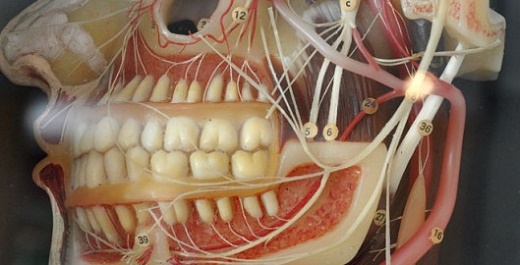 Some highly significant pioneering research dating back to the 1970s and 80s studied the composition of saliva as it varied under conditions of stress vs. meditation-induced relaxation.
Some highly significant pioneering research dating back to the 1970s and 80s studied the composition of saliva as it varied under conditions of stress vs. meditation-induced relaxation.
Among other things it was found that in a person undergoing stress there are higher oral bacteria counts which are lowered, however, when the same person relaxes, indicating that stress may play a part in dental caries and relaxing may actually have an anticaries ("cavity-fighting") effect! In fact, all three general determinants of tooth health were found to be triggered (improved) by meditation: increase in saliva and salivary pH, reduction of salivary bacteria count as well as increase in salivary minerals (for background explanations, see eg Tooth remineralisation, demineralisation, saliva & pH and Minerals and trace elements: vital tooth and body builders).
These results point to meditation being a powerful "weapon" for maintaining or regaining dental health.
Increase in salivary minerals: meditation induces tooth-friendly changes in the meditator's mouth
McCuaig (1974) studied one male TM [Transcendental Meditation] practitioner with six months of experience during ten sessions over a two-week period and found that meditation produced a general increase in salivary minerals, especially sodium, 70%; magnesium, 42%; calcium, 36%; inorganic phosphate, 46%; and potassium, 23%. Salivary zinc was not significantly altered. Protein content of the saliva was increased during meditation by 60%.
